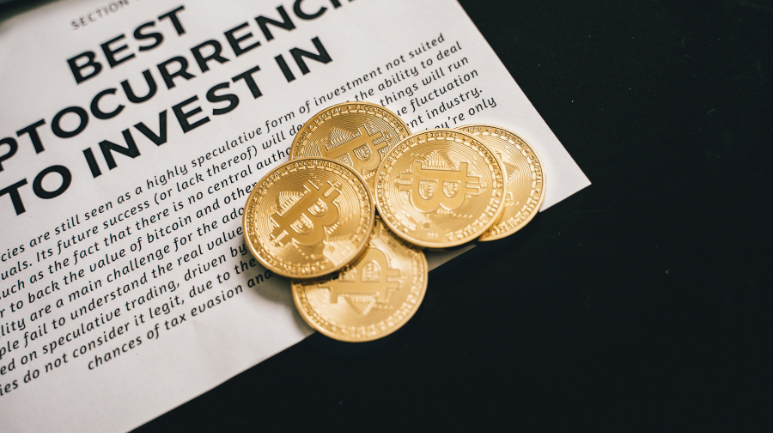Contents
- 1 Investment Plans in UAE
- 2 Top 15 Investment Strategies in the UAE
- 3 How to Invest Your Money in the UAE: Your Basic Starter Kit
- 4 Preparing to Invest: Managing Your Finances Effectively
- 5 Where to Invest Your Money in the UAE: Investment Opportunities
- 6 Stocks
- 7 Bonds
- 8 Fixed-Income Securities
- 9 Annuities
- 10 Endowment Plans
- 11 Mutual Funds
- 12 Exchange-traded funds (ETFs)
- 13 Real Estate
- 14 Real Estate Investment Trusts (REITs)
- 15 Gold
- 16 Cryptocurrencies
- 17 Startups
- 18 Starting a Business
- 19 Structured Products
- 20 High-Yield Savings Accounts
- 21 Conclusion
- 22 Frequently Asked Questions (FAQs)
Investment Plans in UAE boast a robust legal framework designed to safeguard investments, which has consistently attracted substantial foreign direct investment (FDI). According to the UN Conference on Trade and Development report, in 2021, the UAE secured the top position among Arab nations and ranked 15th globally in terms of its FDI attraction capabilities. This dynamic environment offers a diverse array of asset classes for global investors. Let’s explore the various investment avenues in the UAE.
Read more: UAE Life Insurance: Exploring Term Plans and Policies for Your Future Security
Investment Plans in UAE
Investors in the UAE can explore various investment options, including stocks, bonds, mutual funds, ETFs, REITs, and real estate. Below is an overview of these opportunities. Stocks represent a portion of a company’s equity, which any investor can purchase and hold until they choose to sell. When investing in stocks, there are two primary avenues for profit: dividends, typically disbursed every three months, or capital gains through price appreciation.
The latter is particularly appealing for long-term investors. For instance, individuals who acquired shares of International Holding Company PJSC (IHC) at AED 1,400 (USD 380) in 2016 were able to sell them for as much as AED 152,200 (USD 41,400) in 2021. However, it is essential to keep in mind that share prices can decrease, leading to significant losses as well.
To participate in the UAE stock market, one must establish a trading account with a broker. The chosen broker must be registered with one of the following exchanges: Abu Dhabi Securities Exchange (ADX), Dubai Financial Market (DFM), or NASDAQ Dubai.
Read more: UAE Term Insurance: Your Comprehensive Guide to Life Insurance Plans in Dubai
Top 15 Investment Strategies in the UAE

Whether you are a local citizen or an expatriate, the UAE presents numerous avenues for transforming your savings into substantial wealth. You can find comprehensive platforms for self-directed trading and automated investing to help you maximize your financial management tools. Consider two colleagues, each earning a monthly salary of AED 10,000: Person A sets aside 20% of their income to invest in some of the premier investment opportunities in the UAE, while Person B spends their entire income on luxury goods.
Person A has a much greater potential to accumulate wealth, underscoring the notion that wealth creation is more about the strategic exploration and utilization of investment opportunities rather than simply achieving a high income. As Robert Kiyosaki, the esteemed American investor and entrepreneur, stated, “It’s not how much money you make, but how much money you keep, how hard it works for you, and how many generations you keep it for.”
Despite the absence of income taxes in the UAE, many individuals struggle to accumulate wealth due to their spending habits on nonessential items, chasing after the lavish Dubai lifestyle instead of leveraging the investment opportunities available in the region to make their money work for them.
However, this does not have to be your reality. You can join the ranks of expatriates and nationals in the UAE who have successfully made their money work for them, generating additional income in the process. In the following sections, we will explore 15 of the most promising investment opportunities in the UAE that can help you build wealth by effectively utilizing your financial resources.
Read more: Third Party Car Insurance: Your Guide to Online Claims and Liability Coverage
How to Invest Your Money in the UAE: Your Basic Starter Kit
Achieving financial independence is attainable, even if you weren’t born into wealth. This comprehensive guide will empower you to embark on your wealth-building journey with confidence. We aim to provide a one-stop resource for self-directed trading and automated investing, making effective money management tools accessible to everyone.
If you didn’t inherit wealth, does that mean financial freedom is out of reach? Not according to a national study of wealthy individuals in the U.S. conducted by Ramsey Solutions, a financial advisory firm, which found that “79% of millionaires did not receive any inheritance from family.” This trend is reflected in Dubai as well, where around 60% of millionaires are self-made, according to the Khaleej Times.
So, what’s the secret to enjoying a wealthy lifestyle? Approximately 75% of those surveyed by Ramsey Solutions attributed their success to consistent and regular investing over time. If this seems far-fetched, consider the following: investing AED 10,000 at the end of each month for ten years in a portfolio yielding an 8% annual return (compounded quarterly) would result in a total of AED 1,824,086.73 by the end of the decade.
In this beginner’s guide to investing, we will clarify how to invest money in the UAE, helping you accumulate wealth for yourself and your family. We will address the following topics:
- Preparing to invest: Managing your finances effectively.
- Where to invest money in the UAE? Exploring investment opportunities.
- How to invest money in the UAE: Four foundational principles for beginners.
- Developing an investment strategy.
Read more: Comprehensive Car Insurance: Essential Coverage for Collisions and Peace of Mind
Preparing to Invest: Managing Your Finances Effectively
“The key to building wealth is to create a gap between your income and expenses, and then invest the surplus in income-generating or appreciating assets,” advises Elie Irani, an IT professional and personal finance aficionado. Before we delve into investing the surplus, let’s focus on organizing your finances to establish that gap between your income and expenses.
Create a Budget
Establishing a budget is the most effective way to take control of your finances. “A budget guides your money on where to go rather than leaving you wondering where it went,” as John Maxwell indicates. One effective budgeting method to consider is the 50/30/20 rule.
This strategy suggests allocating 50% of your monthly income to necessities (such as rent, clothing, and utility bills), 30% to discretionary spending (like entertainment, hobbies, and dining out), and reserving the remaining 20% for savings. This 20% allocation is crucial, as budgeting aims to ensure your expenditures are less than your earnings.
Adhere to Your Budget
Having a budget is only part of the process; you must also exercise the discipline to follow it. To effectively adhere to your budget, prioritize saving before spending. In the words of Warren Buffett, you should not “save what remains after spending, but spend what remains after saving.”
To avoid the temptation of overspending, it’s advisable to separate your savings from your spending account. Transfer your savings into an investment account first while maintaining discipline over the budgeted amounts for your needs and wants.
Establish an Emergency Fund
Before exploring the best investment options in the UAE, it’s essential to set up an emergency fund. This fund should cover unforeseen expenses resulting from job loss, medical emergencies, natural disasters, or urgent repairs. Diving into investments without an emergency fund can force you to liquidate your investments during a crisis or lead you to accrue high-interest debt on credit cards or other loans.
An emergency fund acts as a safety net. Financial advisors generally recommend that your emergency fund hold enough to cover six months’ worth of living expenses (both needs and wants). When it comes to emergency funds, accessibility (liquidity) takes precedence over profitability. Store your emergency savings where they are easily accessible for true emergencies only.
Read more: Best Car Insurance in Dubai: Top Choices for Affordable Motor Insurance and Coverage
Where to Invest Your Money in the UAE: Investment Opportunities
By applying the three strategies mentioned earlier, you will already have a steady source of investment capital—20% of your income. But what’s the best way to invest that money?
Be cautious: financial scams are prevalent! You may have encountered schemes offering to double your money in just a few days or promises that you could become a millionaire in a matter of weeks. Rather than falling prey to these enticing get-rich-quick schemes, it’s wise to concentrate on investment assets that have traditionally helped individuals accumulate wealth over the centuries.
It’s also important to note that while launching your own business can be a pathway to wealth, it comes with significant uncertainties. According to Investopedia, a financial education platform, around 90% of startups fail, and many require substantial capital—often more than beginners can afford—to achieve notable success.
Thus, as Irani mentioned in the podcast referenced earlier, we will turn our attention to the financial markets. These markets offer “low entry points,” meaning you don’t need entrepreneurial skills, making them accessible to the average person. So, what are the secure investment options available in UAE and Dubai for both Emiratis and expatriates?
Read more: Best Third-Party Car Insurance in the UAE
Stocks
The stock market is one of the most favored avenues for generating income worldwide. A stock represents a share of ownership in a company. A company’s ownership is broken down into multiple shares, which investors can buy and sell on the stock market. Owning shares in a company can yield rewards in two primary ways.
Firstly, when a company generates profit, it may distribute a portion of that profit, known as a dividend, to its shareholders. The amount you receive is determined by the number of shares you own. Secondly, you have the opportunity to sell your shares at a higher price than you paid, which results in a capital gain.
For instance, if you purchased 10 shares of Emirates NBD at AED 10 each, you can sell them at AED 18 per share, resulting in a capital gain of AED 8 per share, or a total of AED 80. Generally, a company’s stock price is linked to its earnings; as a company’s income increases over time, its stock price typically rises.
While traders can profit from short-term stock trading, long-term investors can significantly increase their wealth. For example, if you had invested $1,000 in Nvidia Corporation five years ago, you could sell that investment today for approximately $18,354.
However, while stocks can offer substantial returns, they come with inherent risks. A company that appears promising can falter due to broader economic factors or technological advancements. Consider the case of Blackberry as an example.
Advantages of Stock Investing
Potential for High Returns: Although notable success stories like Nvidia exist, there are also plenty of contrary instances. Thus, it’s advisable to assess the performance of an asset class based on average returns rather than isolated examples. Between 2014 and 2023, the UAE stock market delivered an average annual return of 9.97%. This suggests that your investment could have nearly doubled over that decade, surpassing many other asset classes.
Protection Against Inflation: If inflation rises by 10% and your investment grows by only 8%, you are losing purchasing power in real terms. It could have been more advantageous to have spent that money instead of investing it. However, with stocks, this scenario is less likely to happen, as the stock market usually outpaces inflation, making investing a preferable choice over simple consumption.
Connection to Economic Growth: When the economy is flourishing, companies generally perform well, and stock prices tend to rise. Investing in the stock market allows you to benefit financially during periods of economic expansion.
Ease of Entry: Numerous platforms make it easy for individuals to begin investing in stocks from the comfort of their homes. For example, Sarwa Trade enables you to invest in US stocks listed on major exchanges like NASDAQ and the New York Stock Exchange while based in the UAE.
Disadvantages of Stock Investing
High Risk: The company in which you invest could become the next Nvidia or might falter like Blackberry. Even if you’ve invested in a strong company like Nvidia, there will be times when its stock may underperform, tempting you to sell at a loss. Stock prices are inherently volatile, fluctuating frequently, and investors without a long-term perspective may make impulsive decisions driven by fear or greed.
Need for Expertise: Choosing the right company requires extensive research into the fundamentals of various publicly traded firms. This level of analysis necessitates skills that you may not yet possess.
Bonds
A bond is a type of debt instrument used by national and sub-national governments as well as corporations to raise funds. When you purchase a bond, you become a creditor, while the issuer of the bond is the debtor. Similar to a standard loan, the debtor is obligated to repay the principal amount along with interest. In the case of bonds, interest is typically paid semi-annually in the form of coupons, and the principal is reimbursed at the bond’s maturity (for instance, if you purchase a 10-year bond, it matures at the end of 10 years). There are two primary ways to earn money from bonds.
First, you’ll receive coupon payments twice a year. Alternatively, you can choose to sell the bond before it matures, potentially realizing a capital gain by selling it for more than you originally paid. Bonds can be categorized into three main types based on the issuer:
Treasury of National Bonds: These bonds are issued by the national government and are generally regarded as low-risk investments, given that they are supported by the government’s financial credibility.
Municipal Bonds: Issued by local or subnational governments—such as emirates, state governments, and city councils—these bonds are also considered low-risk assets.
Corporate Bonds: These are issued by private companies. While they tend to carry more risk compared to treasury and municipal bonds, this added risk is often balanced by potentially higher returns.
Advantages of Bonds
Low Risk: Bonds are typically viewed as lower-risk investments compared to stocks. It is uncommon for governments to default on their bonds, and in the event of corporate bankruptcy, bondholders are prioritized over stockholders for repayment.
Diversification: As Suze Orman, founder of Suze Orman Financial Group, notes, “Every portfolio benefits from bonds; they provide a cushion when the stock market experiences turbulence.” Many investors incorporate bonds into their portfolios to hedge against the volatility of stocks. During economic downturns, they tend to allocate more funds to bonds to protect against poor stock market performance.
Stable Income Stream: Unlike a company’s dividends, which can be optional, coupon payments on bonds are mandatory. Failing to make coupon payments indicates a default, making it difficult for the issuing entity to offer new bonds in the future.
Disadvantages of Bonds
Low Returns: Between 2007 and 2024, average interest rates in the UAE were around 1.69%. Since a bond’s income is directly influenced by interest rates, this suggests the returns from bonds are lower compared to potential stock earnings.
Inflation Risk: The relatively low returns mean that inflation may outpace bond income, making current consumption a more attractive option than investing for future gains.
Read more: Affordable Third-Party Car Coverage in Dubai
Fixed-Income Securities

Investors have varying risk profiles, which is why there are different types of investment assets tailored to their needs. For instance, a 20-year-old entering the workforce might prefer to invest heavily in stocks, which typically offer high risk and high returns. Conversely, a 60-year-old nearing retirement is likely to prioritize capital preservation, opting for low-risk and low-return investments. When the focus is on preserving capital, fixed-income securities become a suitable choice. In addition to bonds, which have been discussed previously, there are several other types of fixed-income securities:
Certificates of Deposit (CDs): These are savings accounts that require funds to be held for a specified duration. Upon maturity, the bank or credit union returns the deposited amount along with any interest accrued. CDs generally offer higher interest rates compared to standard savings accounts.
Treasury Notes: These are government-issued debt securities with maturities of less than 10 years, while treasury bonds have maturities that exceed 10 years. Both types of securities pay interest semiannually.
Treasury Bills (T-Bills): These are short-term government debt instruments with a maximum maturity of 52 weeks. T-bills do not pay interest; instead, they are sold at a discount to their face value. For example, a buyer might pay AED 950 for a T-bill with a face value of AED 1,000, receiving the full AED 1,000 at maturity.
Advantages of Fixed-Income Securities
Low Risk: The likelihood of losing your investment is minimal.
Disadvantages of Fixed-Income Securities
Low Returns: The low-risk nature of fixed-income securities typically results in lower returns.
Inflation Risk: When inflation rates are high, the returns from these securities may not keep pace, making immediate consumption more appealing than future investment.
Read more: Find the Cheapest Third-Party Car Insurance Plans in the UAE
Annuities
For those seeking secure investment options in Dubai, bonds and fixed-income securities are solid choices, and annuities also fall into this category. An annuity is a contract between an individual and an insurance company, wherein the insurer agrees to make payments either immediately (immediate annuity) or at a later date (deferred annuity) in exchange for premium contributions.
Premiums can be paid as a lump sum or through a series of payments, and similarly, the payouts from the insurer can be structured as a lump sum or as regular payments. Annuities are particularly beneficial for retirees, who may liquidate their retirement portfolios to fund an annuity contract that guarantees monthly payments for a specific number of years. Some contracts even provide payments until the annuitant’s death. Although there are various types of annuities (such as immediate, deferred, fixed, and variable), they all aim to mitigate risk and ensure a steady income.
Advantages of Annuities
Guaranteed Income: Annuities can provide a fixed rate of return or income for a specified duration, regardless of market fluctuations.
Lifetime Income: Certain annuities offer a consistent income stream for the lifetime of the annuitant, with some continuing until the death of their partner.
Capital Preservation: Annuities can protect your wealth from market volatility.
Disadvantages of Annuities
Complexity: Annuity products can be complicated for the average person to fully understand.
Sacrificing Returns for Security: The safety and guarantees provided by annuities often come at the expense of higher potential returns.
High Commissions: Annuities frequently involve substantial fees and commissions, which can further reduce returns.
Possibility of Default: Annuities are not federally insured. While they may have their insurance mechanisms, it’s important to note that the government is not obligated to provide a bailout.
Read more: Best Third-Party Car Insurance in Abu Dhabi
Endowment Plans
Endowment plans are insurance contracts that offer both life insurance coverage and a savings component. When an investor purchases an endowment plan, the insurer promises to pay the sum assured plus any accrued bonuses upon maturity. If the investor passes away before the plan matures, the insurer will pay the sum assured and bonuses to the designated beneficiary. The funds within an endowment plan are invested and earn a fixed interest rate established at the time of purchase.
Premium payments for these plans can be flexible; investors may choose to make a lump sum payment or opt for a series of payments on a monthly, quarterly, biannual, or annual basis. Endowment plans may also include riders (additional coverage for a fee) for critical illness, disability, accidental death, and hospital cash benefits.
Advantages of Endowment Plans
Guaranteed Returns: Endowment plans offer a fixed interest rate, which is guaranteed by the insurer.
Dual Benefits: These plans allow investors to save for significant goals while simultaneously benefiting from life insurance coverage.
Disadvantages of Endowment Plans
Low Returns: Compared to other investment assets like stocks, endowment plans generally offer lower returns.
Illiquidity: Endowment plans typically have long lock-in periods, and withdrawing funds during this time may incur surrender charges.
Read more: Best Third-Party Car Insurance in Sharjah
Mutual Funds
As mentioned earlier, investing in individual stocks often necessitates a certain level of expertise to effectively choose the right ones. However, not everyone has the time to develop this knowledge. Mutual funds offer a viable alternative. They aggregate funds from numerous retail investors and allocate these resources into stocks, bonds, and other fixed-income securities. Professional managers oversee these funds, leveraging their expertise to select securities that aim to optimize investors’ returns.
In exchange for their services, these managers charge a fee based on a percentage of the assets they manage. As a retail investor, you can acquire shares in a mutual fund. Unlike purchasing individual stocks, owning a share in a mutual fund gives you proportional exposure to all the assets within that fund.
For instance, if a mutual fund focused on equities holds 50 different stocks, buying a share in that fund means you are indirectly investing in all 50 stocks. There are two primary ways to profit from a mutual fund:
- Income Distribution: Mutual funds are required to distribute income generated from the underlying securities to their shareholders at least once a year. This means that any income earned must be allocated to fund holders based on their share ownership.
- Capital Gains: You can also sell your mutual fund shares for a profit. Unlike individual stocks, mutual fund shares cannot be traded during market hours. Instead, you must wait until trading concludes (from 10 am to 2:44 pm in the UAE) to sell your shares at the current net asset value (NAV), which reflects the value of each mutual fund share.
Advantages of Mutual Funds
Professional Management: By investing in a mutual fund, you entrust the selection of securities to skilled professionals.
Diversification: Diversification is a key strategy for mitigating investment risk. By spreading your investments across various assets, you reduce the potential impact of a loss in any single area. Mutual funds simplify this process for retail investors; instead of needing to find funds for multiple stocks, you can invest in one mutual fund and gain exposure to numerous stocks. Some mutual funds even combine equities and bonds, enhancing diversification further.
Customization: There are mutual funds tailored to different risk tolerances. Conservative investors can find funds that allocate, for example, 60% to stocks and 40% to bonds, while those willing to take on more risk can choose funds with an 80% stock and 20% bond allocation.
Disadvantages of Mutual Funds
Limited Trading Flexibility: Mutual funds are less liquid than stocks and ETFs because they can only be traded at the end of the trading day.
Minimum Investment Requirement: Most mutual funds require a minimum initial investment, which may exclude lower-income investors who cannot meet this threshold.
High Costs: To outperform the market and maximize returns, mutual fund managers often engage in frequent buying and selling, which leads to elevated transaction costs that are ultimately borne by fund investors.
Underperformance: Despite their high fees, many mutual funds struggle to exceed market performance.
Read more: Comprehensive Liability Car Insurance Coverage in the UAE
Exchange-traded funds (ETFs)

ETFs share similarities with mutual funds in that they consist of a collection of securities. When you purchase an (ETF), you gain exposure to all the underlying assets it holds. However, there are notable distinctions between ETFs and mutual funds:
- Trading Flexibility: ETFs can be bought and sold on the stock exchange throughout trading hours.
- Management Style: Most ETFs are passively managed, meaning they aim to replicate the performance of a specific market index rather than trying to outperform it.
For example, an ETF might track the FTSE ADX General Index, which includes all stocks traded on the Abu Dhabi Securities Exchange. Consequently, the ETF’s performance closely mirrors that of the index.
Advantages of ETFs
Lower Costs: Because they are primarily passively managed, ETFs do not trade as frequently, resulting in reduced transaction costs and management fees.
Transparency: ETFs are required to publicly disclose their holdings, enabling investors to see exactly what assets their fund contains. Mutual funds do not have the same legal obligation.
No Minimum Investment: ETFs typically do not impose a minimum investment requirement, making them more accessible to those with lower incomes.
Enhanced Liquidity: ETFs are more liquid as they can be traded on the stock market during trading hours.
Disadvantages of ETFs
Tracking Error: Certain technical factors can hinder ETFs from perfectly matching the performance of the index they aim to track. The more actively managed an ETF is, the greater the potential for tracking error.
Closures: In 2024, approximately 62 ETFs have shut down in the US. When an ETF closes, investors must sell their shares at the current market price, which may not be favorable.
Active Management: While ETFs gained popularity for their passive management style, actively managed ETFs have emerged. The introduction of active management can diminish the cost and risk advantages typically associated with ETFs.
Read more: Affordable Basic Car Insurance in the UAE
Real Estate
Real estate stands out as one of the premier investment opportunities in the UAE for both nationals and expatriates. UAE citizens, along with those from GCC countries, enjoy full ownership rights over any property they purchase. In contrast, expatriates can only attain complete ownership in designated free zones. Outside these areas, they may own the buildings on the land for a lease period of 50 to 99 years, but not the land itself.
Nevertheless, real estate remains an attractive investment avenue for expatriates, particularly because it can facilitate obtaining the UAE Golden Visa. There are three primary methods to generate income from real estate in the UAE. The first is through flipping properties, which involves acquiring real estate in desirable locations, renovating it, and subsequently selling it for a profit.
The second method is to engage in real estate development. As a developer, you would buy land and construct either residential or commercial properties, which can then be sold for a profit. The third option is to purchase or develop a property and rent it out, generating income on a monthly, quarterly, or annual basis.
Advantages of Real Estate
High Returns: According to Bayut, a UAE real estate platform, the average annual rental yield in Dubai ranges from 8.5% to 11%, making real estate a highly rewarding investment.
No Taxes: Both UAE nationals and expatriates benefit from the absence of property taxes, as well as no taxes on rental income.
Passive Income: Investing in rental properties can provide a steady stream of passive income.
Disadvantages of Real Estate
Accessibility: Not everyone has sufficient capital to enter the real estate market.
Illiquidity: Selling real estate can be time-consuming. If you find yourself in urgent need of cash, you may have to sell at a significant loss below market value.
Management Challenges: While purchasing properties for rental income can yield passive earnings, managing those properties can be labor-intensive. Outsourcing management is an option, but it may reduce your overall returns due to associated costs.
Read more: Quick Car Accident Claims with Third-Party Insurance in the UAE
Real Estate Investment Trusts (REITs)
For those who lack the capital to invest directly in real estate, Real Estate Investment Trusts (REITs) offer a viable alternative. REITs are designed for investors who wish to benefit from the real estate market without the financial commitment or time needed for property development or flipping.
REITs consist of shares in companies that invest in real estate by either acquiring properties or providing mortgage financing to buyers. Companies that purchase properties are known as equity REITs, while those that focus on mortgage financing are referred to as mortgage REITs. Additionally, there are hybrid REITs that engage in both activities.
Investors can earn income from REITs in two primary ways. First, they can receive dividends, as REITs are obligated to distribute at least 90% of their income to shareholders, making them appealing to those seeking regular income. Second, capital gains can be realized by selling REIT shares. Instead of investing in individual REITs, you can opt for REIT ETFs, which bundle multiple REITs into a single investment that tracks a market index.
The GCC, particularly the UAE, has proven to be a robust market for REITs, even as they face challenges in Europe. According to PwC, an accounting firm, the UAE ranked fourth in 2018 for countries with the highest dividend yields from REITs.
Advantages of REITs
Regular Income: REITs provide a reliable source of passive income.
Accessibility: Individuals with lower incomes who cannot afford direct real estate investments can still gain exposure to the market through REITs.
Liquidity: Unlike physical properties, REITs can be easily bought and sold on stock exchanges.
Diversification: Including REITs in your stock portfolio can enhance diversification.
Disadvantages of REITs
Volatility: Real estate prices can fluctuate due to broader economic conditions or regional factors.
Fees: Some REITs may charge high fees, although this can be mitigated by investing in REIT ETFs.
Read more: Best Third-Party Car Insurance Policies in the UAE
Gold
Gold has long been regarded as a haven investment. Its appeal as a store of value stems from its limited supply, which cannot be arbitrarily increased like fiat currencies. When an asset is recognized as a store of value, it can also be viewed as an investment asset—similar to the emerging trends we see with cryptocurrencies. This understanding explains the continuous upward trend in gold prices since the 1970s. According to Statista, a data reporting platform, gold has delivered an average return of 7.98% from 1971 to 2004.
Moreover, gold has consistently demonstrated its worth as a haven during periods of recession, deflation, and economic hardship. While stocks often falter during these times, gold tends to maintain its value. Additionally, gold is often perceived as a hedge against inflation, although its effectiveness in this capacity has varied.
For these reasons, investors often turn to gold as a means to diversify their portfolios while mitigating risk and volatility. There are five primary methods to invest in gold:
- Gold Bullion: You can purchase physical gold, such as gold bars or coins, from the Dubai Gold Souk.
- Gold Stocks: Investing in shares of gold mining companies is another option.
- Gold Mutual Funds: These funds provide exposure to a range of gold-related stocks.
- Gold ETFs: Gold Exchange-Traded Funds can offer access to physical gold (held by the investment firm) or gold equities.
- Gold Derivatives: You can also trade in gold futures and options.
Advantages of Gold
Solid Returns: While gold may not rival the returns of U.S. stocks, it typically outperforms bonds and some stock markets.
Safe Haven: During economic downturns in the UAE, gold represents a strong investment option.
Portfolio Diversification: Incorporating gold into your portfolio can help lower overall risk.
Disadvantages of Gold
Challenges of Physical Gold: Investing in physical gold presents several issues, including delivery logistics, storage, security concerns, high premiums, and liquidity challenges.
Uncertain Inflation Hedge: Although gold can protect against deflation, its role as a hedge against inflation remains uncertain.
Cryptocurrencies

Cryptocurrencies are decentralized digital currencies that function without the oversight of a central authority. Initially introduced as alternatives to fiat currencies, cryptocurrencies have evolved into a distinct asset class, offering diverse investment opportunities. Currently, there are 9,538 cryptocurrencies worldwide, totaling a market capitalization of $2.69 trillion.
Some cryptocurrencies, like Bitcoin, primarily serve as alternative payment methods, while others, such as Ethereum, underpin blockchain networks for decentralized applications. There are also stablecoins, which are tied to the value of another asset (usually the U.S. dollar), as well as meme coins that gain popularity through social media.
Bitcoin’s limited supply prevents any increase in its availability, which could devalue it. As it can be a store of value—unlike fiat currencies—many view Bitcoin as “digital gold,” offering a potential diversification option for investment portfolios, although its effectiveness in this role remains uncertain.
You can profit from cryptocurrencies in two main ways: by staking them to receive regular income or by realizing capital gains upon their sale. While many investors engage in short-term trading for immediate profits, others focus on the long-term potential of promising cryptocurrencies by adopting a buy-and-hold strategy. In the UAE, you can explore cryptocurrency investment through the Sarwa Crypto platform.
Advantages of Cryptocurrencies
Store of Value: Cryptocurrencies with limited supply can act as a store of value.
Decentralization: Cryptocurrencies facilitate a decentralized approach to payments, remittances, lending, and other financial services. The significance of liberty and individual freedom motivates ongoing efforts at decentralization, ensuring the continued growth of crypto innovations as an asset class.
No Intermediaries: The lack of intermediaries in cryptocurrency transactions can make international dealings quicker and, in some cases, more affordable.
Potential for High Returns: The higher risks associated with cryptocurrencies can lead to substantial rewards. Many investors have reported extraordinary returns, sometimes achieving 100 times their initial investment within months.
Disadvantages of Cryptocurrencies
Extreme Volatility: Cryptocurrency prices are notoriously volatile. While some have experienced remarkable profits, they have also endured significant losses.
Regulatory Risks: Responses from regulators have varied, with some embracing cryptocurrencies and others opposing them. Ongoing uncertainty around regulatory frameworks contributes to the overall risk associated with investing in cryptocurrencies.
Excessive Noise: The influence of social media on many cryptocurrencies can make it challenging to distinguish between long-term value and fleeting trends.
Startups
Venture capital firms (VCs) have successfully profited over the years by identifying promising startups and investing in them. Historically, such investment opportunities were primarily accessible to high-net-worth individuals (HNWIs) with substantial capital. However, the rise of fintech has democratized startup investing, enabling retail and smaller investors to participate. Now, with an investment of just 100 US dollars or 1,000 dirhams, you can acquire equity in a startup.
If you possess more capital than the average retail investor, you can also independently approach startups to explore investment opportunities. Notable places to discover interesting startups include the Dubai Startup Hub, GITEX Future Stars, and UAE Demo Day.
Advantages of Investing in Startups
High Returns: A startup in which you invest could become a highly successful company, providing you with significant returns on your investment.
Diversification: Including startups in your portfolio can enhance diversification.
Personal Fulfillment: Supporting a startup that addresses crucial societal issues can be rewarding on a personal level, beyond just financial gains.
Disadvantages of Investing in Startups
High Risk: The majority of startups ultimately fail.
Expensive Diversification: While diversifying can mitigate risks associated with startup investments, it typically requires substantial capital.
Lack of Track Record: Unlike stocks, where past performance can be evaluated, investing in startups relies heavily on their potential for future success.
Read more: Best Third-Party Liability Car Insurance Plans in the UAE
Starting a Business
The UAE government has made significant efforts to create a supportive environment for entrepreneurs as part of its strategy to diversify the economy. If you have a solid business idea, consider launching your venture. You can start small while maintaining your current job and eventually scale up as opportunities arise.
According to Middle East Economy, a business magazine, the leading industries expected to drive growth in 2024 and beyond include hospitality and tourism, logistics and transport, real estate, construction, banking and finance, retail, healthcare, e-commerce, consulting, and oil and gas.
Advantages of Starting Your Own Business
Control Over Your Future: Unlike other investment opportunities in the UAE, which often require you to rely on others, starting your own business means your financial success is entirely in your hands.
Potential for Higher Returns: You might earn more by building your own business than by investing in someone else’s.
Personal Fulfillment: Creating something from the ground up can provide a profound sense of accomplishment.
Disadvantages of Starting Your Own Business
Financial Uncertainty: It may take years before your business generates any profit.
Risk of Financial Loss: Many startups do not succeed, leading to potential financial losses.
Read more: Find Affordable Third-Party Car Insurance in the UAE
Structured Products
Structured products are investment instruments whose performance is linked to an underlying asset, market index, commodity, currency, or other financial variables. They often incorporate options, which are financial derivatives that grant buyers the right to buy or sell an underlying asset at a predetermined price on a specified date.
Given that derivatives are generally suitable only for experienced investors, financial institutions create structured products to provide retail investors access to these instruments. They achieve this by combining derivatives (usually options) with fixed-income securities.
In the case of structured deposits, the fixed-income component ensures the return of your principal, while the derivative portion may yield additional returns. Some structured products, known as structured notes, do not guarantee principal protection. In these instances, investors could earn higher returns if market conditions are favorable, but they also risk losing their principal if the situation deteriorates.
Advantages of Structured Products
Customizable: Structured products offer significant flexibility and can be tailored to align with the risk tolerance and investment goals of various investors.
Principal Protection: Structured deposits can include a fixed-income element that guarantees the return of your principal.
Higher Yield Potential: Structured notes can be utilized to enhance yield when market trends are favorable.
Disadvantages of Structured Products
Complexity: Due to their flexibility, structured products can become quite intricate.
Capital Loss Risk: Some structured products do not provide principal protection, which can lead to capital loss.
Illiquidity: If structured deposits are not held until maturity, capital loss may occur.
Investment Risk: Structured products are not backed by the national government, meaning they carry inherent risks.
High-Yield Savings Accounts
When saving for a short-term expense, it’s wise to select an account that provides easy access to your funds without incurring fees. Traditionally, savings accounts have fulfilled this purpose. Although they offer low interest rates, you can withdraw your money whenever you need it (with some accounts imposing monthly withdrawal limits).
These accounts are also useful if you’re not yet certain about how to invest your money. You might still be in the process of developing a robust investment strategy in the UAE that optimizes your returns while minimizing risk.
Rather than letting your money sit in a checking account, where it earns no interest, consider transferring it to a savings account to earn a modest return. Many financial institutions offer high-yield savings accounts that typically yield more than standard savings accounts, though they may enforce stricter withdrawal limits or minimum balance requirements.
With Sarwa Save, you can benefit from a competitive interest rate of 3%, withdraw your funds at any time without facing a lock-up period, and start saving without needing a minimum balance. This flexibility makes Sarwa Save a great option for emergency funds.
Advantages of High-Yield Savings Accounts
Higher Returns: They typically offer better yields than conventional savings accounts.
Low Risk: The funds in savings accounts are insured by the federal government, ensuring that your money is safe even if the bank were to fail (up to certain limits).
Achieve Short-Term Goals: High-yield savings accounts are effective for reaching short-term investment objectives without putting your capital at risk.
Disadvantages of High-Yield Savings Accounts
Lower Yields Compared to Other Investments: The returns are generally less than what is offered by bonds, stocks, and other financial assets.
Withdrawal Convenience: The ability to withdraw funds easily can make it challenging to stick to long-term savings goals.
As discussed, identifying the single best investment asset in the UAE is challenging. Some assets are suitable for capital preservation, while others excel at growth. The optimal approach to investing in the UAE is to integrate various investment opportunities into a diversified portfolio, preventing you from putting all your resources into one option. Assess your investment objectives, risk tolerance, and time horizon to construct a portfolio that aligns with your financial goals.
Conclusion
Investment Plans in UAE provide a robust framework for individuals looking to grow their wealth strategically and effectively. Among the best investment options available, ADCB’s investment banking solutions stand out, offering tailored strategies that cater to various financial goals. Whether you opt for traditional endowment Invest Pro or explore systematic plans, there’s something for every investor in the UAE.
Investors can benefit from real estate investments, which remain a popular choice due to the rapid development in cities like Dubai. Additionally, diversifying your portfolio with international mutual funds can yield significant returns. For those seeking a more structured approach, a monthly investment plan allows for consistent contributions without overwhelming financial strain.
Finally, Money Market Funds provide a low-risk option for those who prefer liquidity and stability while still aiming for growth. By exploring these best investment opportunities in the UAE, you can set your financial future on the right path, unlocking the potential for long-term prosperity and security.
Read more: Explore the Cheapest Third-Party Car Insurance Options in the UAE
Frequently Asked Questions (FAQs)
What is the best investment in the UAE?
Stocks, mutual funds, ETFs, REITs, real estate, startup investing, and starting your own business are some of the top investment choices in the UAE if you want to maximize your earnings.
How to invest with 500 dirhams in UAE?
You can invest 500 Dirhams in the UAE in ways:
– Real Estate Crowdfunding Investment Platforms. Real estate crowdfunding is becoming increasingly popular in the region, notably in Dubai, due to the numerous benefits it provides.
– Stocks and ETFs.
– Gold.
– Cryptocurrency.
How to invest 2000 dirhams in UAE?
Stocks, bonds, REITs, mutual funds, ETFs, gold, and Bitcoin are all viable investment options in the UAE. To invest well, you must think long-term, diversify your portfolio, choose passive investments, and use a robo adviser.
How to invest 10,000 AED in UAE?
The following are some short-term investment alternatives in the UAE that may provide better returns:
– Gold and Precious Metals.
– Real estate investment trusts (REITs).
– Exchange-traded funds (ETFs).
– Digital investment platforms and robo advisors.
– Mutual funds.
– Stocks.
– Investing in smaller companies.













